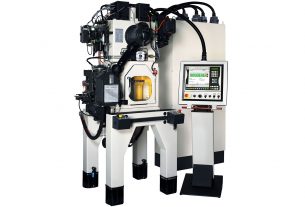The coronavirus crisis has exposed critical weaknesses in UK and global supply chains, and not just when it comes to ventilators and personal protective equipment (PPE). According to a survey of around 600 small and medium-sized manufacturers in England, a huge 82% say they’re experiencing disruption to their supply chains.
According to the Manufacturing Growth Programme, which carried out the survey along with the South West Manufacturing Advisory Service (SWMAS), one of the biggest problems is an overreliance on critical components supplied from overseas. And with Brexit on the horizon, as the UK officially leaves the European Union on 31st December 2020, minor supply hiccups could soon turn in insurmountable problems without careful, long-range planning.
Industry leaders urge manufacturers to see pandemic disruption as a reset point
Right now, many manufacturers are preoccupied with plugging gaps in their supply chains and coming up with temporary solutions to get through the crisis. But industry leaders are advising that what these firms are doing now shouldn’t be seen as simply crisis response. The weaknesses exposed by the pandemic should instead act as a critical wake-up call to build more resilience into supply chains.
For many firms, the crisis seemed to come out of nowhere, leaving them hopelessly unprepared. With the twin challenges of coronavirus recovery and the uncertainty of Brexit at the end of the year, now is a pivotal moment for businesses across a range of industries.
Will these firms simply ‘manage’ for now, or take real measures to prepare for the future? The more a business can future-proof against all kinds of worst-case scenarios, including the likelihood of post-pandemic financial recession, the more chance it has of long-term survival.
Martin Vares, the founder of award-winning cloud-based metal fabrication platform Fractory, believes that whole industries could – and should – rethink their strategies for supply chain management. He said:
“The current situation is of course extreme. A lot of supply chains are suffering, as manufacturing companies are reducing their workforce or even halting operations. International freight adds an extra layer of complexity. Thus, a lot of engineering companies are searching for solutions that address the manufacturing process and the shipping process at the same time. I think this is why we’ve experienced a significant increase in interest in our service, as it addresses both problems simultaneously.
“Our platform offers instant manufacturing quotes online and we take care of everything from quoting to delivery. But the manufacturing side is outsourced to our pre-vetted partners. Some engineers have been wary of us “being just a middleman”. They are now seeing the perks. With over 25 partners, we are not affected by small fluctuations in capabilities. And the same applies to our customers.
“Contractors winning big jobs often don’t want to overwhelm their own production by using it for one order only. So they outsource parts of these large orders.”
Vares, a recent honouree in the 2020 Forbes 30 Under 30 list, also discusses how the flexibility and resilience of supply chain digitalisation has made Fractory uniquely placed to assist the NHS:
“Now, during the NHS crisis, there are huge jobs going around in an industry where the ties have not been established over the years, hence new companies are winning big jobs. And they, in turn, are looking for partners to help them.
“Fractory is just someone who can easily help other companies with managing the load. We are not being used by engineers only, other manufacturing companies often turn to us with the same objective.
“Fractory’s automated manufacturing platform can rapidly switch between a network of partners to secure continuity of supply for our customers. Thus, it continues to run on full power and has been able to assist with large orders related to the NHS.
“While the current situation brings a lot of uncertainty, digital manufacturing’s strength is becoming evident.
“Fractory is just someone who can easily help other companies with managing the load. We are not being used by engineers only, other manufacturing companies often turn to us with the same objective.”
How digital businesses can support the economy
Matt Yeates, the managing director of Tata Steel’s SteelScout procurement platform, believes that firms who already have digitised supply chains are in a strong position right now. They could even be the companies that keep global economies going. He says:
“Everybody now is experiencing major changes to their daily lives, learning to adapt to the guidelines for safe operation of our businesses, through to protecting our communities during the pandemic. These challenges mean we reach for new solutions or enhance current approaches.
“The power of digital in solving these problems, from 3D printing to multiple participant video conferencing, has never more been more apparent. Digital enablers for the manufacturing value chain are developing fast and their value at the moment is magnified against the challenges of continuity for key industries and workers.
“Being a digital business means that we’re able to respond quickly and rapidly connect the right buyers with the right suppliers in order to guarantee materials and jobs. We have already supported companies working on key projects, including the manufacturing of ventilators for the NHS, by being able to rapidly quote for and turn around materials and guarantee jobs. And we’re here to support businesses in any way we can during these challenging conditions.”
But could new digital and cloud-based ways of working soon become a permanent reality, rather than just a temporary coping strategy for an unprecedented situation? One company helping firms respond to immediate challenges is Autodesk, with its Fusion 360 Go-to-Market. Senior Director Srinath Jonnalagadda believes that while it’s very early days, more companies could soon realise the shock-proofing benefits of digital workflows.
“Fusion 360 has always been set up with collaboration in mind, your data is centralized to the cloud, meaning all teammates have access at any time, anywhere. Right now that advantage is being leveraged by teams to help minimize the disruption to their project work.
“We have opened up these capabilities to everyone, for free, to minimise disruption across entire supply chains.
“To help out professionals and companies that are struggling to cope with disruption in work, we recently rolled out an extended access program, giving everyone access to all of our cloud based tools such as Fusion 360, for free, until the 31st of May. We’re certainly seeing an influx of users looking to Fusion 360 to solve their design problems right now, but the increase is not our focus, we want to ensure people can still work.
“It’s too early to tell if this new way of working will have a positive impact on the sector, there is much to be said about the desire for people to work in person, eye to eye, and we may see the pendulum swing back toward that aggressively in the short term once this is all over, but for manufacturing, just standardizing everyone onto a digital medium is already a major push forward.
“If the conveniences, and efficiency continue to outweigh any potential drawbacks (and they continuously will!) then a predominantly digital workflow shall emerge as the new paradigm.
“Eventually companies will all be prepared for the system shocks that occur with global crises or unforeseen circumstances, and today that solution means moving to an increasingly digital and cloud driven way of working.
“The ultimate end-goal for manufacturing lies with centralized systems. If we can move towards fabrication strategies as we see in semi-conductor factories, with less and less human intervention, we can increase accuracy and open new possibilities up with automation, bringing about the next paradigm shift in technology and manufacturing.”





